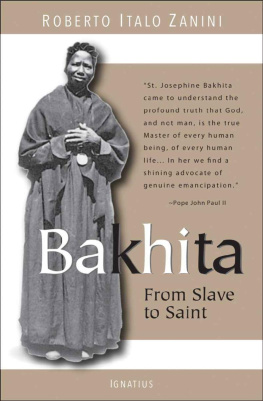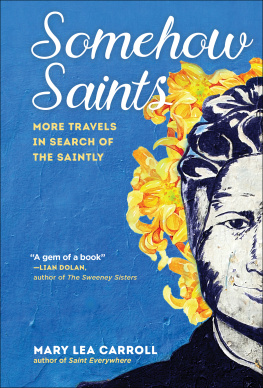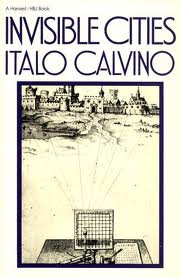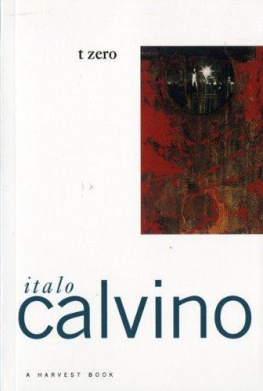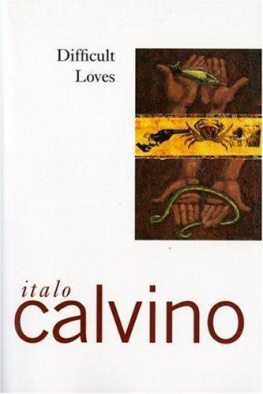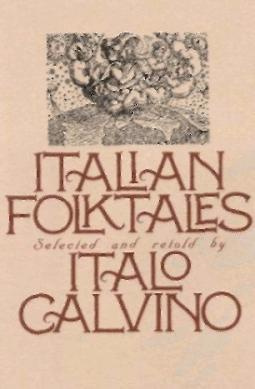Roberto Italo Zanini - Bakhita : from slave to saint
Here you can read online Roberto Italo Zanini - Bakhita : from slave to saint full text of the book (entire story) in english for free. Download pdf and epub, get meaning, cover and reviews about this ebook. year: 2013, genre: Non-fiction. Description of the work, (preface) as well as reviews are available. Best literature library LitArk.com created for fans of good reading and offers a wide selection of genres:
Romance novel
Science fiction
Adventure
Detective
Science
History
Home and family
Prose
Art
Politics
Computer
Non-fiction
Religion
Business
Children
Humor
Choose a favorite category and find really read worthwhile books. Enjoy immersion in the world of imagination, feel the emotions of the characters or learn something new for yourself, make an fascinating discovery.
- Book:Bakhita : from slave to saint
- Author:
- Genre:
- Year:2013
- Rating:3 / 5
- Favourites:Add to favourites
- Your mark:
- 60
- 1
- 2
- 3
- 4
- 5
Bakhita : from slave to saint: summary, description and annotation
We offer to read an annotation, description, summary or preface (depends on what the author of the book "Bakhita : from slave to saint" wrote himself). If you haven't found the necessary information about the book — write in the comments, we will try to find it.
Bakhita : from slave to saint — read online for free the complete book (whole text) full work
Below is the text of the book, divided by pages. System saving the place of the last page read, allows you to conveniently read the book "Bakhita : from slave to saint" online for free, without having to search again every time where you left off. Put a bookmark, and you can go to the page where you finished reading at any time.
Font size:
Interval:
Bookmark:
BAKHITA
By Roberto Italo Zanini
Translated by Andrew Matt
IGNATIUS PRESS SAN FRANCISCO
Original Italian edition
Bakhita, Inchiesta su una santa per il 2000
2000 by Edizione San Paolo s.r.l.Cinisello Balsamo, Milan, Italy
Cover photograph of Saint Bakhita
Cover design by Riz Boncan Marsella
2013 by Ignatius Press, San Francisco
All rights reserved
ISBN 978-1-58617-689-1 (PB)
ISBN 978-1-68149-742-6 (EB)
Library of Congress Control Number 2012942818
Printed in the United States of America
There is but one sadness,
and that is for us not to be saints .
Leon Bloy
Only one who does not know the history of the Church
can feel ashamed of it,
because the history of the Church
is first and foremost
the history of the saints .
Alberto Zanini
I am very happy and honored to be able to offer to the Canossian family and to all their friends throughout the world the present volume on Josephine Bakhita, written on the occasion of her canonization.
I confess that I was deeply moved while reading these lively and stirring pages, which recount in a new way the story of a new saint. It is clear that the author was attracted by the mystery of her persona mystery that comes alive in all those who have known hereven before meeting her, before admiring her extraordinary story, before understanding the message that her life always transmits, gently penetrating the soul of whoever listens with the ear of the heart.
The attraction people feel for Mother Bakhita, our universal sister, as Pope John Paul II called her, is truly exceptional. This attraction happened when she was alive, and it happens today, to people of the most diverse backgrounds. As the author makes very clear, Bakhita does not speak the language very well in which she communicates, she does not know many things, and she has done nothing extraordinarybut nevertheless many seek her out, many change their lives after coming to know her, many remember her with admiration and venerate her as the mediator of great favors from heaven. Why?
The secret springs from her profound relationship with the Parn , the Lordliterally, the Master. Bakhita is in constant dialogue with her Lord, entrusting herself to him with a childlike joy and intimacy at all times. Thanks to him, she becomes a master of humble and warm welcome to others, of joy, of goodness, of sincere forgiveness, of complete confidence in God, who has made her his daughter and thus free to welcome and give love, always and anywhere.
In our present age, in which efficiency occupies first place in the scale of values and mankind forces itself to suppress its yearning for authenticity and contact with the Eternal, Mother Bakhita demonstrates for us with authority that the greatest value is to become children of God and that only by walking humbly with our God (cf. Mic 6:8)dowe fully discover our true and deepest selves.
May the memory of Mother Bakhita that is offered to us in these pages help us to grow in goodness and simplicity and in our capacity to read history, with its blessings and its burdens, in the light of Revelation. May we become evermore-receptive sons and daughters in the hands of our Lord, who desires us to be signs of his love in the worldlike Bakhita.
Mother Ilva Fornaro
Superior General
Canossian Daughters of Charity
I owe a debt to Bakhita. It is a little story, a personal story that led me to encounter this saint with the sweet smile and the deep, steady gaze. After learning about this woman, about her unique personality, which coincides with an equally unique charism of holiness, it becomes clear that her presence does not leave you. On the contrary, she accompanies you with a discrete persistence. Like an encouragement never to let the thread of providence slip from your fingers, a thread at times so tenuous and invisible, Bakhita helps us to make it through the labyrinth of our everyday struggles.
Bakhita is a friend, someone with whom you can share your disappointments and failures, someone you can ask for advice. Why? Because a woman who has survived the oppression of slavery does not set herself apart from anybody. Because listening to the whispers of suffering mankind continues to be the role most consonant with a woman who was the portress of the Canossian house in the town of Schio, Italy, who for years counseled and helped mothers worried about their children, who took countless little orphans by the hand, who aided fathers of families in finding work, who helped shelter soldiers in the convent, which was transformed into a hospital during the First World War. She, the Little Brown Mother who spoke the dialect of the people of the Veneto region in northern Italy, is ever close to those who might feel a little inadequate or tongue-tied speaking to the saints.
But let me return to my debt. I have to admit that what I, as a journalist, knew of Bakhita was linked to what unfolded before my eyes on the occasion of her beatification in 1992. At the time I knew nothing more than that the Sudanese slave who had become a Canossian nun had served as a cook, washed and folded the linens, and opened and closed the convents front door for a little religious community in the province of Verezia. There was nothing extraordinary (like miracles, visions, or supernatural events), as might be expected for a blessed, I thought, without in any way judging the reasons that had brought her along the path toward canonization.
Then Bakhita came looking for me.
It happened after the death of Monsignor Claudio Sorgi, journalist, writer, TV personality, and above all a true priest, who died in November 1999 after a painful battle with a malignant form of lymphoma. Monsignor Claudio was the head of the missionary magazine for which I had worked over the course of many years. But he was also the author of several books, one of which was a biography of Josemara Escriv de Balaguer, The Father , written for the occasion of the beatification of the founder of Opus Dei, which took place on the same day as that of Bakhita.
At the beginning of his illness, Monsignor Claudio had accepted a commission from the Canossian Sisters to write Bakhitas life story. It was a commission he was unable to fulfill because of the relentless advance of his illness, which progressively deprived him of the use of his hands. Nevertheless, the book on Bakhita was his idee fixe. You have to get better, Monsignor Claudio. You have to write the book. Bakhita is waiting, I would tell him when I visited him in the hospital.
One morning after his death, two Canossian sisters came to my office to ask whether he had left a completed manuscript or a draft of the book. Nothing; there was nothing. But there I was. And the sisters proposed that I gather Monsignor Claudios notes and pick up where he had left off. This was an inheritance, one that I could share only with the help of a friend, someone who was trained in the same school of journalism as I had been under Monsignor Claudio Sorgi. As a result, while strange circumstances gave us the impression that a plan was unfolding that was completely out of our hands, the baton of this task was passed on to Roberto Italo Zanini, one of the editors of the Catholic newspaper Avvenire . The time frame for completing the book was getting tight, and I, for family reasons, could no longer remain directly involved in the project. Yet, as I said before, I remained indebted to Bakhita.
The book, however, was written by Roberto. From the very start he set out with passion, beginningas a good journalist shouldeven before he possessed all the facts about his subject. He soon did know his subject, of course, for he researched all the written records, traveled to the places where Bakhita lived, and visited and spoke with people who had known the saint in person. Among these living witnesses were women who, as young students at the Canossian-run school, strolled through the corridors and gardens in the company of the saint. Instead of recounting fairy tales, Sister Bakhita told them the adventures of her own life, with her voice that was a little hoarse. She walked with a particular gait that the girls of that time still remember.
Next pageFont size:
Interval:
Bookmark:
Similar books «Bakhita : from slave to saint»
Look at similar books to Bakhita : from slave to saint. We have selected literature similar in name and meaning in the hope of providing readers with more options to find new, interesting, not yet read works.
Discussion, reviews of the book Bakhita : from slave to saint and just readers' own opinions. Leave your comments, write what you think about the work, its meaning or the main characters. Specify what exactly you liked and what you didn't like, and why you think so.

